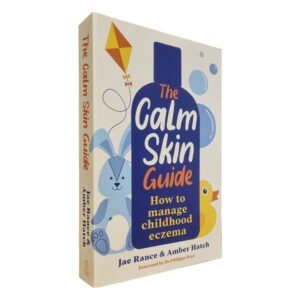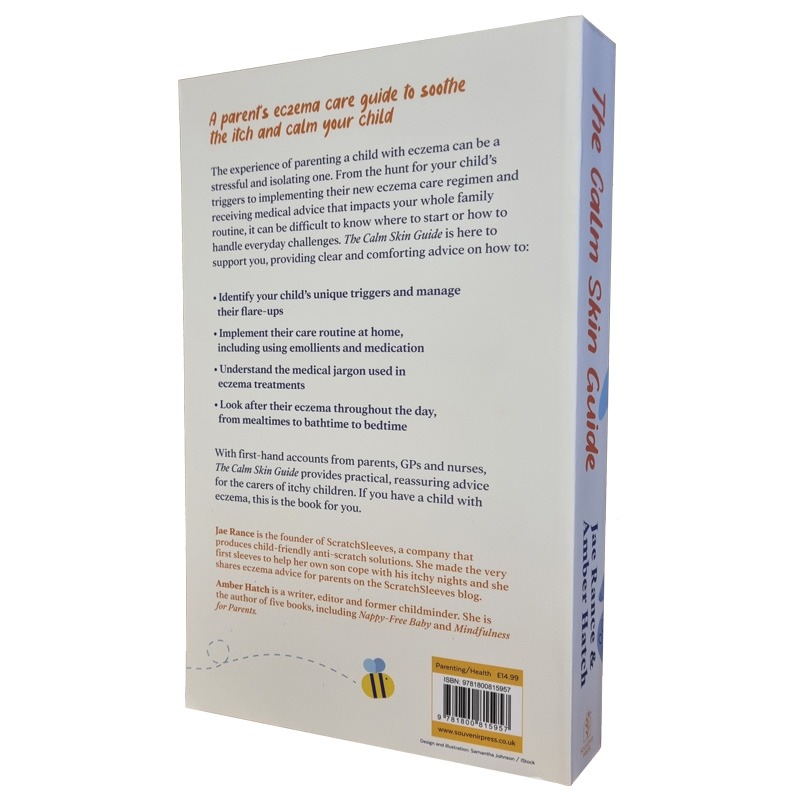Baby eczema: Getting the support you need



If you have an baby or child with eczema, you’ll be well aware that the condition has a broad impact on everyone involved in their care. Grandparents, aunts, uncles, friends, nursery and school carers each have to understand how eczema affects your child, and how to deal with it. Not only is it important for their peace of mind and your little one’s well-being, but it’s also vital for you. A trustworthy support network can make all the difference.
Getting the support you need
It’s not easy being a parent, and it’s not easy managing eczema. Put the two together and we’ve got the perfect recipe for anxiety and stress. And with families to take care of, I’m sure you’ll agree that we really have got enough on our plates already! We all know that calm, happy parents are more likely to raise calm, happy children, so it’s important to look after ourselves properly, for our own sake and for the sake of our families.
To this end it’s absolutely vital to involve your wider network of family, friends, schools and any paid child carers in the management of your child’s eczema. This can either be through helping you to manage eczema directly, or through providing additional support to keep your life running smoothly. My message is: don’t be afraid to ask for help and intervention. Knowing that other people understand how eczema affects your child will mean you:
- don’t need to worry when others are taking care of your child
- don’t need to continually explain your eczema challenge or justify or explain your treatment methods.
It also means that the people who are involved in caring for your child will be able to do so with confidence. They will know that they are playing their part in keeping your child comfortable and as itch-free as possible. Eczema does tend to run in families, so it’s likely that grandparents will have some experience themselves. However, I know from personal experience it’s awful for a carer, and especially a grandparent, to hand back a child to its parent with their eczema aggravated and more pronounced. The feeling of guilt can be profound.
Feeling in control of eczema
Perhaps not surprisingly, as parents of children with eczema we can find it difficult to release control of managing the condition. Like me, you’re likely to try various remedies as your child develops. You’ll build up a lot of knowledge which, naturally, other people do not have. This means it can be difficult to feel confident that other people understand the situation as well as you do.
And because there’s rarely one single cause or one single treatment for eczema, and the condition can change as your child grows up, it’s likely that your support network can feel confused about what’s best for your child, or overwhelmed at the information they have to take on board.

Get talking
Of course, different children react differently to eczema, and their condition is aggravated by different things, so it’s important to ensure your wider support network is well briefed so that they are positively enabled to help manage the eczema.
An ongoing dialogue helps other people to take your child’s eczema into account in ways which they may have not considered before. For example, family members may wish to treat your child to an ice-cream while on a day out, and may not understand (or remember) that dairy foods can cause a reaction. You can read more about eczema and food here.
Or your parents may think they are helping by doing your laundry but then they use a wash powder which aggravates the problem, causing you more work after all. Or friends may wish to pick up your child or cuddle them without realising that close contact with clothing which has been washed in highly fragranced or biological wash powder can unleash a new battle with eczema. It’s a good idea to keep a supply of muslin squares which you’ve washed at home with your tried-and-trusted detergent to solve this problem.
Because eczema is part of your everyday life, you may feel you sound like a broken record when telling people what they need to know. However, don’t worry. If other people are going to be looking after your child for any length of time then it’s best to talk in detail to them about how eczema affects your child and the various coping strategies you may have put in place.
Think about transferring as much of your knowledge as you can as this enables people to understand what they need to do to manage the eczema – or at least not worsen it – when you’re not around.
Think beyond childcare – get help with everyday tasks
Sometimes you may need to call upon your support network when your child goes through a particularly bad spell with their eczema and you feel unable to relinquish their care to others for any length of time. There are lots of ways people can help you – don’t be afraid of accepting all the offers you get!
Think about the sort of help which will support your wellbeing. Perhaps you need regular help with day-to-day household tasks – so if you have the spare cash, a paid-for cleaner could be a big help. Alternatively, you may need to build a network of people who can step in occasionally to do various tasks.
Whatever your situation, do take positive action. All too often we’re too polite when it comes to asking for or accepting help, and leave it until it’s too late and we’re on the edge of collapse.
Unfortunately, if you’re not proactive you may not get the help you need. All too often, if you wait for people to offer support, they will usually offer to do the nice things, like entertain your child, feed or cuddle them or take them out somewhere. While this is no doubt very welcome, especially if you have a new born and are feeling rather sleep-deprived, it may not always be the type of help you need at that particular time.
Though you may feel that you’re taking advantage, the sort of help that is likely to make a difference to you (and your sanity) will probably centre on daily life chores which simply have to be done to keep your household running smoothly. Knowing that these simple tasks are done will help to make you feel calmer and able to concentrate on meeting your child’s needs.
Little things make all the difference
Helpful tasks which others may be able to do for you could include:
- Ordering the weekly shop online (and using a shared shopping list app so regular items don’t get forgotten)
- Making dinner, or filling up the freezer with home-made meals
- Tidying the house
- Putting the bins out
- Taking the clothes out of the washing machine…and ironing them!
Even asking your spouse to research mobile phone apps which could help in the management of eczema may be useful (there are lots of apps which help you monitor your family diet to help identify any foods which may aggravate the eczema, for example). This in turn will enable your spouse to manage the weekly shop as they will be able to interrogate what goes into the basket, ensuring there is nothing which will aggravate the eczema. Not only is this sort of support helpful to you but it also helps to share the burden of managing eczema effectively on an ongoing basis.
Whatever type of help you feel you need, don’t leave it until it’s too late and you’re feeling overwhelmed. Most people in your support network will understand and will be happy to do whatever you ask of them if they can see it makes a positive difference to you. And, of course, you can always return the favours in future.
Here at ScratchSleeves we don’t just share our experiences of bringing up an eczema child and favourite allergy friendly recipes, we also manufacturer and sell our unique stay-on scratch mitts and PJs for itchy babies, toddlers and children. We now stock sizes from 0-adults years in a range of colours. Visit our webshop for more information.
The Calm Skin Guide
Love our blog? It's also available in book format with:
- First hand accounts from parents & medical professionals
- Easy navigation
- Comprehensive index
- Additional material
Signed copies available at no extra cost
Written by:
Interesting article? Don't keep it to yourself...
Read next...
You may also find helpful...
Quick buy


Multi Buy Discount

Spend between £30 - £60 and save 5%
Spend between £60 - £120 and save 10%
Spend over £120 and save 15%
Discount automatically applied at checkout
No Quibbles Guarantee

ScratchSleeves abide by a no quibbles guarantee.
Free UK Postage

Free packing and postage on all UK orders. For overseas orders to Europe postage is from £3.50, to USA is £6.50 and to the rest of the world, from £3.75.






